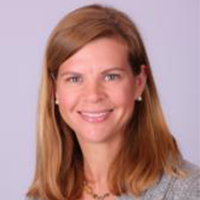“You cannot improve much at the site level without improving your primary investment—the workforce,” says Denise Snyder, MS, RD, LDN, associate dean for clinical research at the Duke University School of Medicine.
While she’s a big fan of some new technologies and innovative best practices, Snyder says her long involvement with the clinical trial industry drives this simple truth home: “If your corporate culture won’t come with you on a journey of change management, you won’t get far.”
Snyder and her team at Duke have been leading the way for several years with creative approaches to career mapping and competency-driven job descriptions. Now, about five years into the cluster of initiatives, she’s more convinced than ever that clinical trial success comes down to people. “Our staff are one of our most prized investments, and it’s not productive to make them miserable” and apathetic—or worse—about coming to work, she says.
At Duke, Snyder and team are proactive when it comes to engaging others about prospective changes. “We’re always asking staff, ‘How can we do better at training and securing you the tools you need to succeed?’” she explains.
Over the past several years, Duke has gone from using more than 80 job codes to instead using 12 competency-based classifications. The institution has also established clear career paths for clinical trial staff.
“Our team members can see the path to advancement now,” Snyder says. “It’s transparent. It wasn’t that way before because we had no real consistency.” She’ll provide the latest milestones and goals for the future at the ACRP Southeast Regional Conference in early October, being held in conjunction with the ACRP Research Triangle Park Chapter at the Sheraton Imperial at Raleigh-Durham Airport. Partnering with Snyder for the presentation will be Deborah Hannah, MT(ASCP), CCRC, research practice manager at Duke.
Duke’s ambitious Workforce Engagement and Resilience (WE-R) program is based on:
- Standardizing competency-based job descriptions for roles and skills
- Creating competency-based training programs
- Evaluating framework knowledge and skill gaps within and across individuals
- Self-assessment of competencies to achieve the next level of proficiency
- Identifying gaps to prioritize and direct additional training activities
- Improving job portfolio documentation
- Structuring for systematic evaluation of proficiency and competencies for performance
Looking back over the successes and failures of their ongoing program, Snyder’s not surprised that a big difference between a positive and negative outcome is the human factor. “So often we see the difference is when people are excited about a change and we’ve established relationships” to make certain everyone understand what’s expected of them, why it’s needed, and why their input is also valued, she says.
“Methodology and technology are exciting developments. But we need to recognize people in the process,” agrees Jim Kremidas, executive director of ACRP. “It’s an important part of the equation.”
“Duke is now at the forefront of innovation—not just in research itself, but in the way our research workforce is organized,” says Mary Klotman, MD, dean of the Duke School of Medicine. “This has created systemic efficiencies that improve the quality of clinical research.”
Author: Michael Causey



